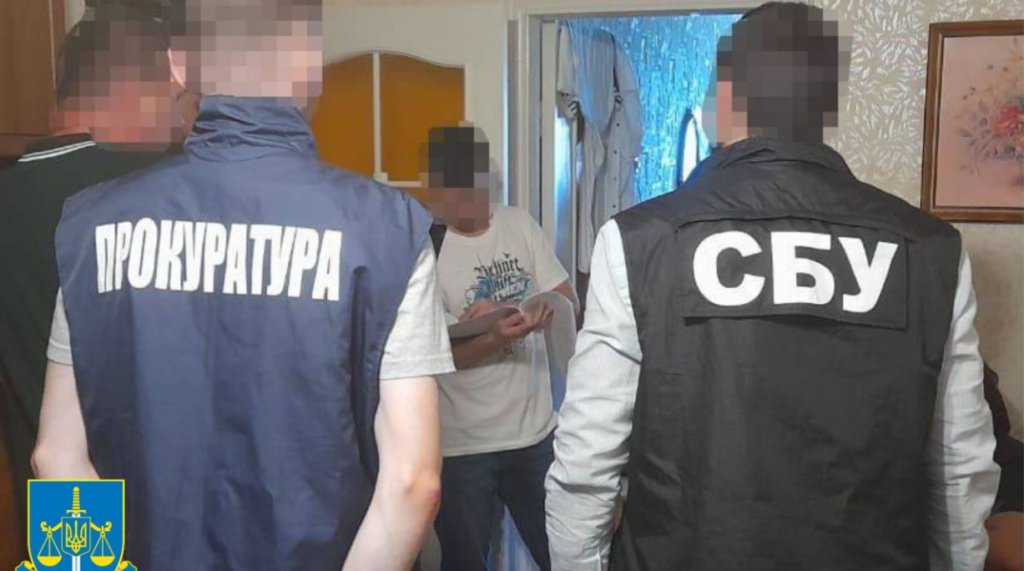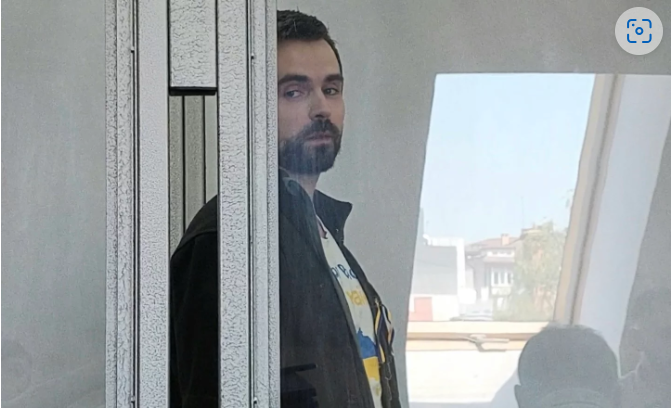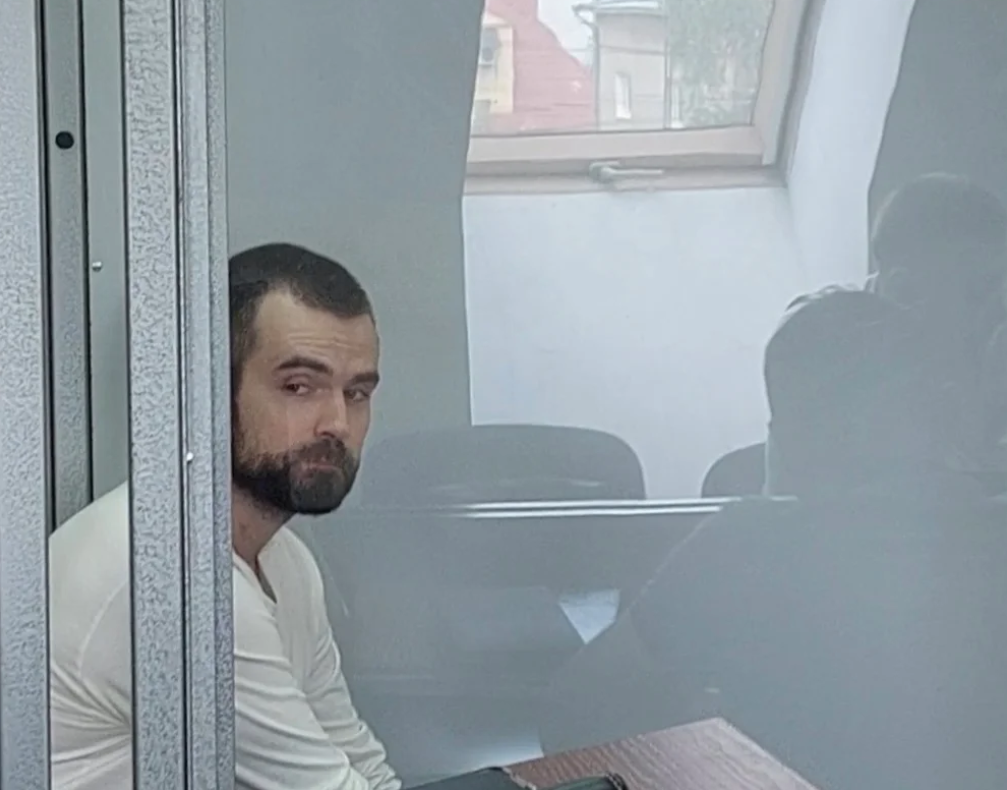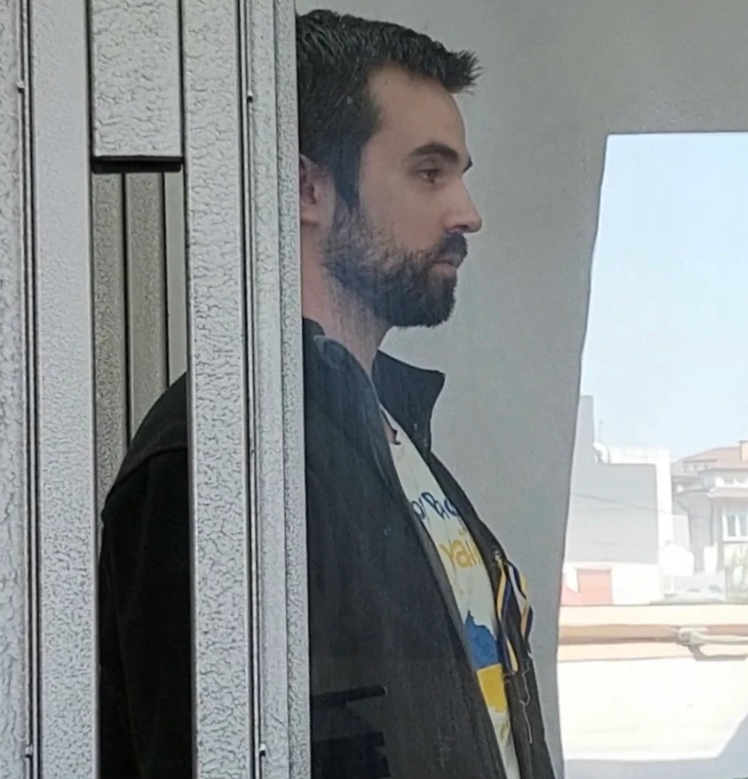In July 2023, a Lviv court began hearing the case of 33-year-old (at the time) Andriy Ivasenko, the son of a former employee of the local SBU branch. Ivasenko, a programmer, officially worked as an internet marketer for an American company until 2021, and then freelanced.
Criminal proceedings against him were initiated in March 2022, and on August 25, 2022, he was notified of suspicion under Part 2 of Article 109 (calls for the overthrow of power), Part 2 of Article 110 (encroachment on territorial integrity), Part 1 of Article 111 (high treason), Article 436 (calls for aggressive war), and Part 2 of Article 436-2 (justification of Russian aggression) of the Criminal Code of Ukraine. The cumulative charges against Ivasenko carry a sentence of up to 15 years of imprisonment with confiscation. On July 15, a search was conducted at Ivasenko’s home. Under pressure from the SBU, he confessed to the crime, but later retracted his confession in court.

Since then, Ivasenko has been held in pre-trial detention in Lviv. The prosecution believes that in March 2014, he created a community called “Lviv People’s Republic” on the social network “VKontakte” with the slogan: “For union with Novorossiya! Stop the ATO!”, where he disseminated “anti-Ukrainian and propaganda materials”. The Ukrainian legislation does not have the concept of “anti-Ukrainian materials,” however, this does not stop the SBU from using such formulations.
“According to the investigation, militants hired one of the defendants to remotely perform the functions of an IT specialist for the pseudo-LNR administration,” the SBU press service wrote. That is, this involves a group of people, but Ivasenko’s accomplices have not been identified. This usually means they do not exist.
The SBU reports that Ivasenko ran the website “VoskhodInfo,” which is “linked” to the head of the DNR Denis Pushilin. However, they were unable to prove Pushilin’s involvement, so they limited themselves to the formulation “linked,” without specifying who exactly made the link and on what basis. They were also unable to present evidence of a connection between Ivasenko and the texts on the “VoskhodInfo” website.
The investigation lasted a long time — until the end of March 2023. In July, they began to consider the evidence.
It turned out that the “Lviv People’s Republic” group was active until July 2017, after which its activity ceased. Accordingly, the lawyers argued that all the incidents attributed to Ivasenko occurred long before the introduction of martial law, but only now, when the group has long been dormant, criminal activity is somehow being seen in them, and before that, a large online community in Lviv, which allegedly acted in the interests of Russia against Ukrainian national security, went unnoticed for years.
The prosecution stated that Ivasenko administered “anti-Ukrainian” groups through a fake account registered to a Ukrainian phone number, “Alexander Yakimov,” which was seized during the search. A linguistic examination found public calls for the violent change or overthrow of the constitutional order in the phrases “Biĭ bander, riatuĭ kraїnu” (“Beat Banderites, save the country”) and “Vstavai Ukraїno ide Tiagnibok, vsi rasi ponishchitʹ i bude vse ok” (“Rise up Ukraine, Tyagnibok is coming, he will destroy all races and everything will be ok”).

The same was found in the following texts:
- “Yes, I’m from Lviv, but even here, in Lviv, not everyone disgraces their kind by betraying Ukraine and adhering to Nazism… We have no alternative but to stand against the “terbat” and “dobrobat” units, the Banderites, werewolves in uniform, bandits and executioners“.
- “When those involved in torture at the SBU are found and hanged, let them not ask ‘For what?’. ‘For the neck,’ you motherf*ckers. For all you’ve done — for the torture, secret prisons, corruption — you will be hanged by the neck.”
The investigation stated that Andriy was an active participant in chats through which “LNR and DNR militants coordinated actions aimed at harming Ukraine’s information security.” Ivasenko allegedly agreed with a certain Nikita Levi on DDoS attacks on “pro-Ukrainian websites.” Who Nikita Levi is and by what criteria “pro-Ukrainian websites” are determined is not reported. The correspondence presented to the court concerns a website called “Maydanutyy” (lit. “Maidan-Crazed”). On what basis it was considered “pro-Ukrainian” and whether such a website even exists is unknown. The word “Maydanutyy” in an ironic and derogatory sense is often used by Russian bloggers in relation to supporters of the 2014 Euromaidan in Ukraine. It is very doubtful that a pro-Ukrainian website could have been named that.

In one of the court hearings, the lawyer pointed out that, conducting a semantic-textual study of Ivasenko’s messages, the expert went beyond their authority, as they gave an assessment of the emotional component, which falls within the competence of a psychological and linguistic examination. In their conclusion, the expert calls Ivasenko’s evaluative judgments calls and propaganda. No evidence that after the start of the full-scale conflict in 2022, Ivasenko posted anything on the resources indicated by the investigation has been presented. Ivasenko was charged with high treason under martial law, but (according to the text of the suspicion) the actions he is accused of were committed before the introduction of martial law.
The second correspondence presented to the court involved Ivasenko exchanging messages in 2017 with someone named Vadim Zhechev. The SBU claimed this was actually Vladislav Izgiztsev, an alleged employee of the LNR’s ‘Humanitarian Operations Directorate’—but provided no explanation for this identification. Crucially, the court received no documents proving: 1)That such an LNR division even exists; 2)That Izgiztsev holds any position there.In these chats, Ivasenko (using the alias ‘Alexander Yakimov’) expressed outrage over SBU’s persecution of Ruslan Kotsaba — a Western Ukrainian journalist designated as a prisoner of conscience by Amnesty International for opposing Ukraine’s 2014 ‘Anti-Terrorist Operation’ in the east. No criminal intent is discernible here.
Investigators also cited an appeal to Ivasenko from one Pyotr Linev regarding Ukrainian political prisoners:
‘We have two people detained in Odesa. Managed to free one through collective efforts—hired lawyers, paid bribes, all good. Everyone chipped in, so to speak. But there’s still a girl trapped in the SBU’s Odesa pre-trial jail for over six months now. They’re pressuring her constantly… Basically, we need money. Could you help? I saw you assisted a journalist from “Novorossiya” in a group. We’ll provide proof she’s really there—photos, everything. We’ve scraped together some funds, but it only covers small bribes to stop SBU officers from beating her.’
It is also unclear what constitutes a crime here.
During a search of Andrey’s residence, a Russian electronic wallet “YuMoney” was found, which received approximately 260,000 Russian rubles ($3100) from 2016 to 2021 (before the full-scale conflict began). The investigation considered this money to be from “terrorists” for the creation and maintenance of websites, and also from crowdfunding on the “Antimaidan.org” website. The source of this information is unknown. 260,000 rubles over 6 years is a little more than 43,000 rubles per year, or about 3,500 rubles (approximately 45 US dollars at the exchange rate of that time) per month. This is clearly not enough to create and maintain websites. Ivaseko worked in IT and could receive private orders in rubles – this fact was not taken into account by the prosecution. In addition, before the full-scale conflict in 2022, the Russian wallet “YuMoney” was integrated with the Ukrainian state-owned “PrivatBank,” which charged a commission for transferring money from “YuMoney” to its card. Thus, receiving money in this way was not illegal.

All the funds found during the search of Ivaseko’s residence were seized. However, the prosecution did not provide the court with a single document confirming the transfer of the seized funds to Ivaseko by any representatives of Russia for the purpose of subversive activities in Ukraine. On the contrary, the defense provided certificates of the defendant’s income, which indicate a legal source of his receipt of the seized funds.
By the end of 2024, all the evidence in the case had not been examined in court. On December 12, the court set bail for Ivaseko at 3 million hryvnias. The defendant was unable to pay this amount; all his savings were seized. On February 21, 2025, the court noted that for various technical reasons, the prosecutor could not complete the presentation of evidence, and because of this, the court could not proceed to the stage of questioning the defendant. The court stated that this situation arose solely due to the poor organization of the prosecutor’s work (it is unacceptable to listen to the same protocol for three entire sessions), the defendant is not guilty of this, therefore, the court decided to reduce the bail amount for Ivaseko to 2 million 400 thousand hryvnias.
Currently, Andrey remains in custody for almost 2 years. During this time, not all the evidence in the case has even been considered in court.
This translation was made using a neural network. If you find any inaccuracies, please contact us.


